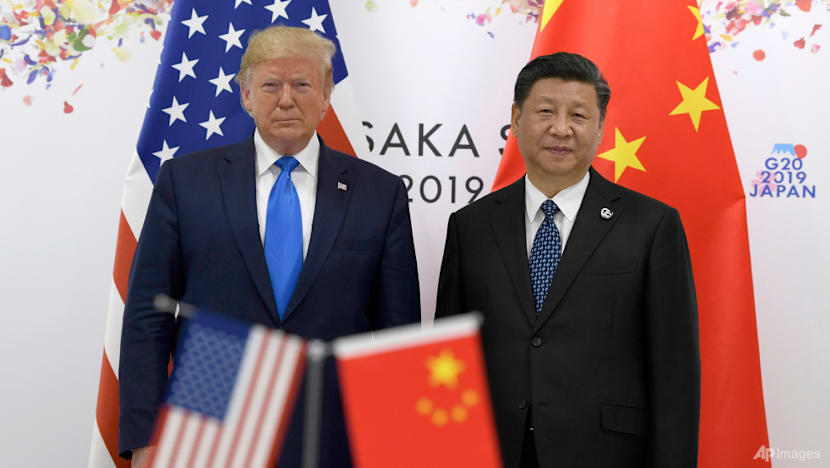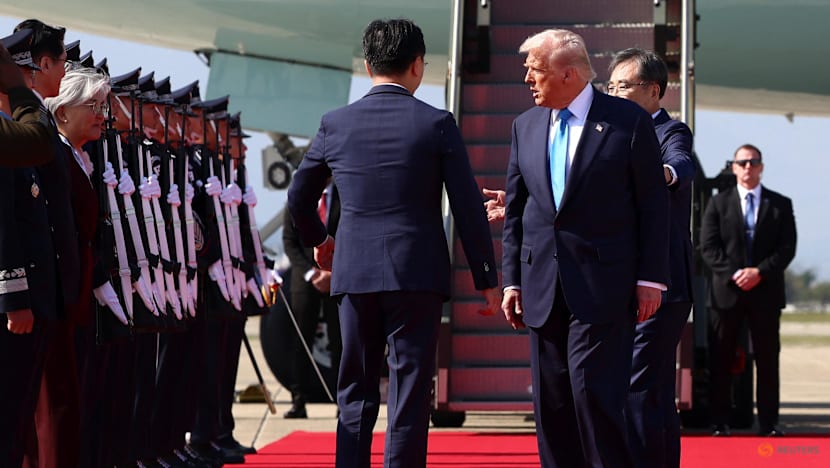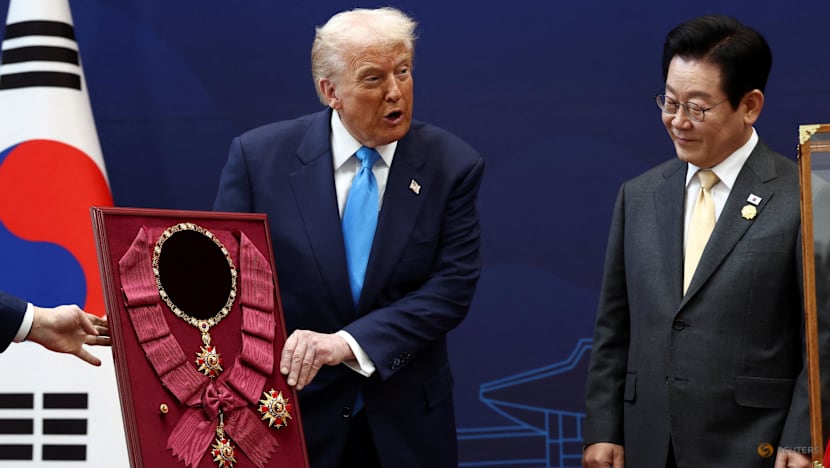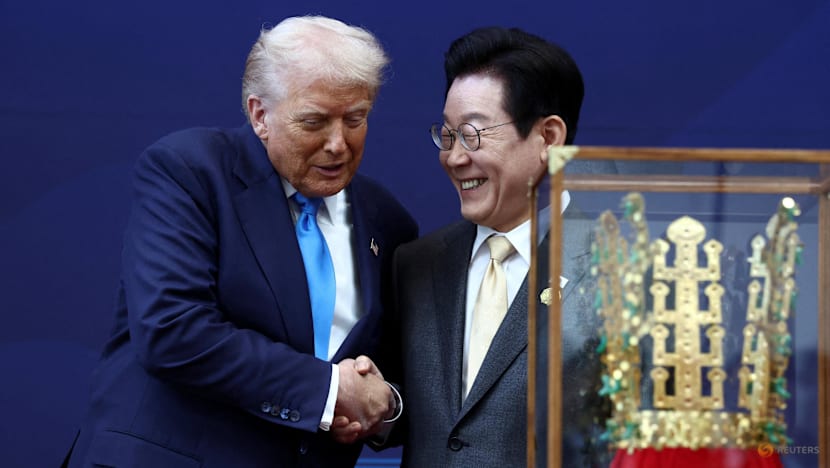China says Xi, Trump to have 'in depth' talks on 'major issues'
Trump has said he expected their first face-to-face meeting of his second term to result in the United States lowering tariffs imposed on China in relation to fentanyl.

US President Donald Trump poses for a photo with Chinese President Xi Jinping during a meeting on the sidelines of the G20 summit in Osaka, Japan, Jun 29, 2019. (Photo: AP/Susan Walsh)
BEIJING: China said that leader Xi Jinping and US President Donald Trump will have "in depth" talks on "major issues" Thursday (Oct 30), as expectations grew for their high-stakes talks in South Korea.
Trump has said he expected their first face-to-face meeting of his second term to result in the United States lowering tariffs imposed on China in relation to fentanyl.
Beijing confirmed the face-to-face meeting on the sidelines of a summit of Asia-Pacific Economic Cooperation (APEC), which is taking place in the city of Gyeongju.
The Chinese foreign ministry said the talks would take place in Busan, a short flight from Gyeongju.
"During this meeting, the two leaders will have in depth communication on strategic and long-term issues concerning China-US relations, as well as major issues of mutual concern," foreign ministry spokesman Guo Jiakun told a regular news conference on Wednesday.
"We are willing to work together with the US side to ensure that this meeting yields positive outcomes, provides new guidance, and injects new momentum into the stable development of China-US relations," Guo added.
Trump said earlier he expected a "lot of problems" to be solved with Xi in their talks on dialling down their hugely damaging trade war.
UNRESOLVED TARIFF DEAL WITH SOUTH KOREA
Trump began the final leg of his Asia trip in South Korea on Wednesday, optimistic about advancing an unresolved tariff deal with South Korea's Lee Jae Myung.
Arriving from Tokyo hours after North Korea test-fired a nuclear-capable cruise missile, Trump met Lee on Wednesday in Gyeongju.
Speaking to reporters aboard Air Force One en route to South Korea earlier, Trump dismissed the North Korea missile test and said he was squarely focused on his meeting with the leader of the world's second-largest economy.
Addressing a summit of APEC CEOs in Gyeongju before his meeting with Lee, Trump said a trade deal with South Korea would be finalised "very soon", though officials on both sides have been downplaying the prospect of a breakthrough this week.
The two allies announced a deal in late July under which South Korea would avoid the worst of the tariffs by agreeing to pump US$350 billion of new investments into the United States. But talks over the structure of those investments have been deadlocked.
Meeting Lee at the nearby National Museum, Trump was presented with a gold crown and the Grand Order of Mugunghwa, the country's highest decoration, worn as an elaborate sash and medal.
"I'd like to wear it right now," Trump quipped.
At the start of the working lunch, which included a "golden dessert", Lee pledged to spend more on defence - trying to head off a common bugbear of Trump's that allies are not pulling their weight.


He also requested that the US allow it to reprocess nuclear fuel to power submarines. Seoul is prohibited from doing so without US consent under an agreement between the countries.
Trump pledged to help "straighten out" South Korea's problems with its nuclear-armed northern neighbour. The two Koreas are still technically at war after their 1950 to 1953 war ended in an armistice, not a peace treaty.
Trump has made repeated calls for a meeting with North Korean leader Kim Jong Un during this trip but said on Wednesday the timings would not work out.

FINAL STOP IN ASIA TRIP
Trump's trip to South Korea concludes a whirlwind swing through the region, among the hardest hit by his tariff policies and increased US-China competition.
In Malaysia, he announced a slew of trade agreements and oversaw the signing of an expanded truce between Thailand and Cambodia after a border conflict.
In Tokyo on Tuesday, Trump lavished praise on Japan's first female Prime Minister Sanae Takaichi, welcoming her pledge to accelerate a military buildup and signing deals on trade and rare earths.
The US and Japan also released a list of projects in which Japanese companies are eyeing US investments, related to Tokyo's pledge earlier this year of US$550 billion in strategic US investments, loans and guarantees in exchange for tariff reprieve.
















